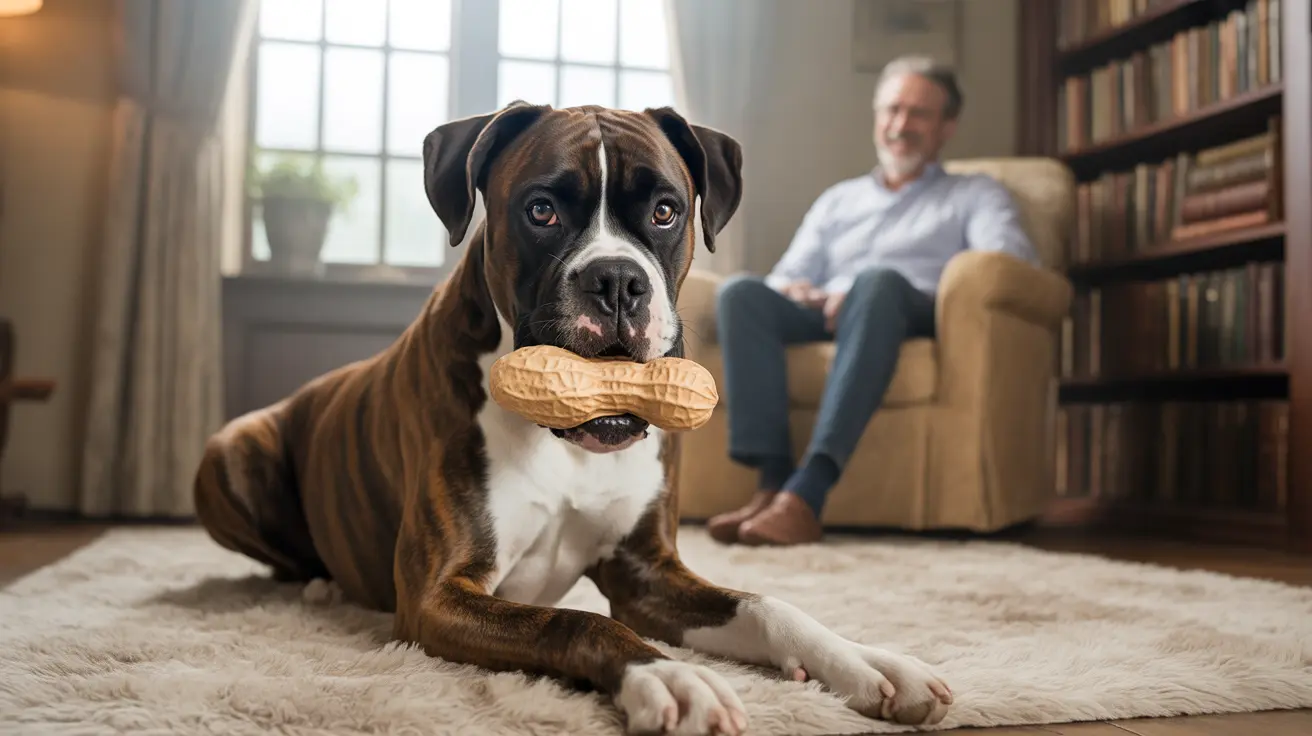As dog owners, we often wonder what human foods are safe to share with our furry friends. When it comes to nuts, the answer isn't straightforward. While some nuts can be a healthy occasional treat, others pose serious health risks to our canine companions. Let's explore what nuts can dogs eat safely and which ones should be avoided entirely.
Understanding the proper way to feed nuts to dogs is crucial for their health and safety. This comprehensive guide will help you make informed decisions about incorporating nuts into your dog's treat rotation while avoiding potential hazards.
What Nuts Can Dogs Eat Safely?
Several nuts are generally safe for dogs when offered in moderation:
- Peanuts (unsalted and raw)
- Cashews (plain)
- Chestnuts (cooked and unseasoned)
- Brazil nuts (in small amounts)
However, even these safe options should only be given occasionally and in small quantities. The high fat content in nuts can lead to weight gain and potentially trigger pancreatitis in susceptible dogs.
Can Dogs Eat Pine Nuts? Understanding the Benefits and Risks
Pine nuts are generally safe for dogs to consume in small amounts. These nutrient-rich nuts contain beneficial compounds including:
- Protein
- Healthy fats
- Vitamin E
- Magnesium
- Iron
However, there are important considerations when feeding pine nuts to dogs:
- Only offer plain, unsalted pine nuts
- Monitor portion sizes carefully
- Watch for signs of digestive upset
- Consider the high calorie content
Dangerous Nuts That Dogs Must Avoid
Several types of nuts are toxic or potentially harmful to dogs:
- Macadamia nuts (highly toxic)
- Walnuts (risk of mold toxins)
- Pecans (contain harmful compounds)
- Pistachios (digestive issues)
- Almonds (choking hazard)
Safe Feeding Guidelines for Dogs
When offering safe nuts to your dog, follow these essential guidelines:
- Always remove shells and chop nuts into small pieces
- Limit treats to 10% of daily caloric intake
- Never give salted, seasoned, or flavored nuts
- Introduce new nuts slowly and watch for reactions
- Store nuts securely out of your dog's reach
Frequently Asked Questions
What nuts are safe for dogs to eat and which should be avoided?
Safe nuts include plain peanuts, cashews, chestnuts, and Brazil nuts in moderation. Avoid macadamia nuts, walnuts, pecans, pistachios, and almonds as they can be toxic or pose health risks.
Can dogs eat pine nuts, and are there any health risks associated with them?
Yes, dogs can eat pine nuts in small amounts. While they provide beneficial nutrients, they're high in fat and calories, so moderation is key to prevent digestive issues or weight gain.
Why are macadamia nuts toxic to dogs and what symptoms should I watch for?
Macadamia nuts contain compounds toxic to dogs, causing symptoms like weakness, depression, vomiting, hyperthermia, and difficulty walking. Even small amounts can be dangerous.
How should I safely give nuts to my dog to avoid choking or digestive issues?
Remove all shells, chop nuts into small pieces, and only offer plain, unsalted varieties. Start with tiny amounts and monitor for any adverse reactions.
Is peanut butter safe for dogs, and what ingredients should I avoid in it?
Plain, unsalted peanut butter is safe for dogs, but avoid any containing xylitol (artificial sweetener), added salt, or sugar. Always check ingredients carefully.
Conclusion
While some nuts can be safely shared with dogs, it's essential to exercise caution and moderation. Always prioritize your dog's regular, balanced diet and use nuts only as occasional treats. When in doubt about any specific nut or if your dog shows adverse reactions, consult your veterinarian for personalized advice.






